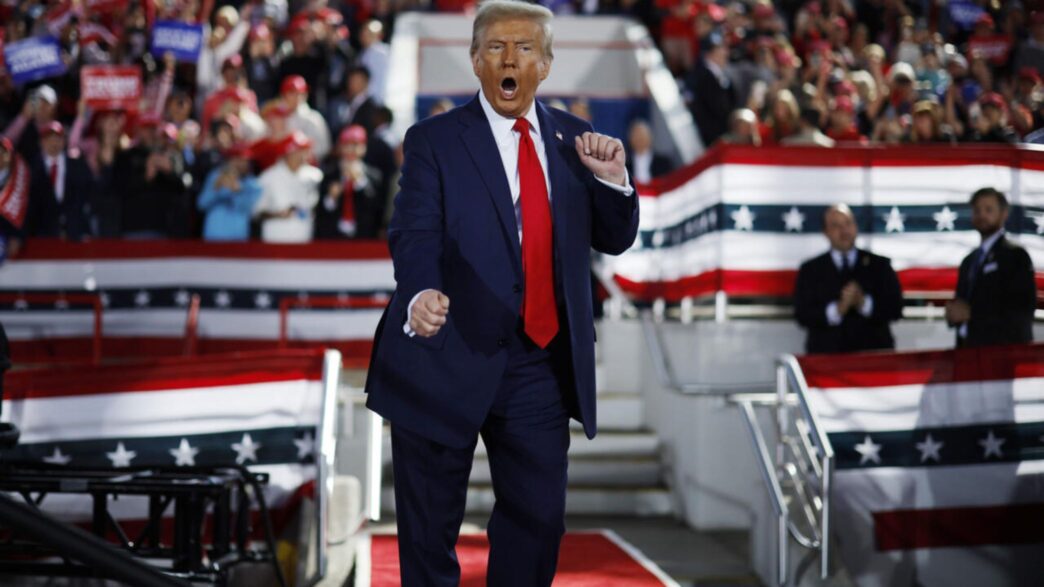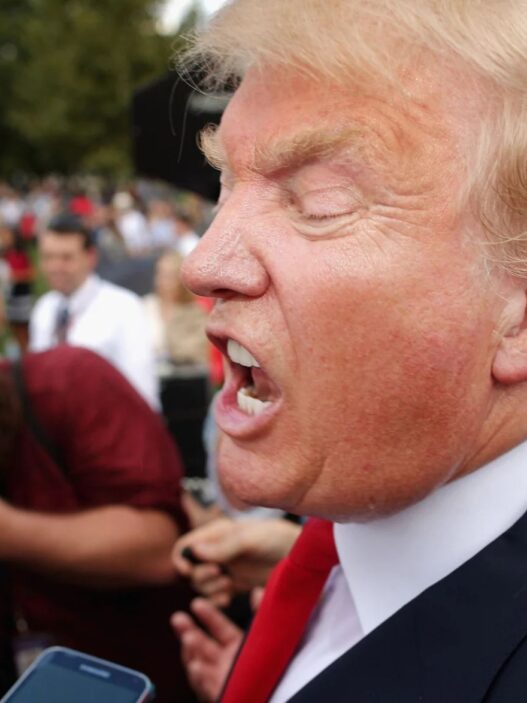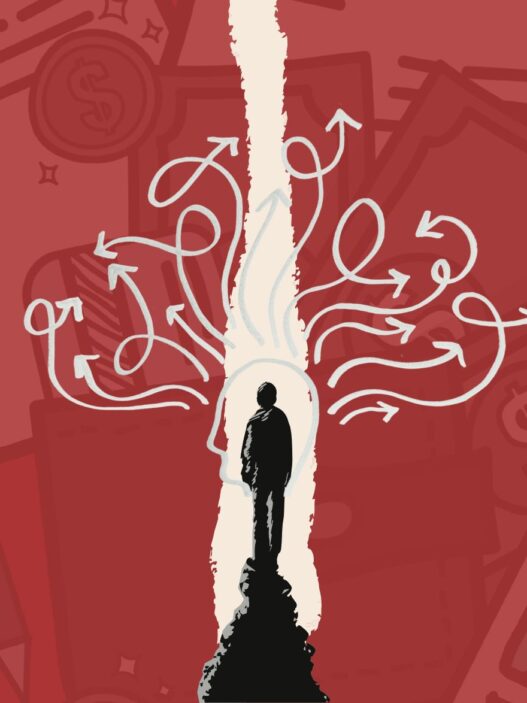In a world of soundbites and scandals, it’s easy to overlook the deeper consequences of political decisions. But when the President, Donald Trump, turned the U.S. away from global partnerships and made sweeping executive actions, the cost wasn’t just political. It was personal.
For many Americans, his policies feel like betrayal. Leaving them with not just financial burdens, but mental and emotional scars.
David French’s recent New York Times opinion piece, “Donald Trump Is Running Riot,” analyzed Trump’s erratic decision-making.
But let’s call it what it is: chaos.
If I misread that headline as “Donald Trump The Running Idiot,” perhaps it’s because his choices often seemed detached from the real-world consequences they inflicted on Americans, especially in mental health and healthcare.
Gut Punch Politics
Social media is filled with regretful Trump voters saying things like, “He LIED to us, it feels like a gut punch!”
This sentiment reflects more than political disappointment; it represents the emotional weight of broken promises.
For example, when Trump announced the withdrawal of the U.S. from the World Health Organization (WHO), many Americans felt abandoned during a global health crisis.
The WHO coordinates international efforts to fight pandemics, manage disease outbreaks, and support vulnerable populations.
By severing ties, Trump didn’t just isolate the U.S.; he jeopardized the health of millions.
Healthcare workers, already burdened by burnout, were left feeling unsupported.
They saw a leader prioritizing politics over lives, as the COVID-19 pandemic exposed the cracks in the system.
Nurses, doctors, and mental health professionals bore the brunt of these failures, facing limited resources, increasing patient loads, and a growing mental health crisis among their ranks.
The “Big Beautiful Bill” That’s Gutted Medicaid
Now back in office, Trump has thrown his weight behind what he calls “One Big Beautiful Bill.”
But buried inside is one of the most destructive budget decisions in years, cuts to Medicaid ranging from $793 to $864 billion over a decade.
The Congressional Budget Office projects up to 16 million Americans could lose coverage. And rural hospitals? Hundreds may be forced to close under the weight of reduced reimbursements.
Trump continues to falsely claim the bill only trims “waste.” The reality? It guts services for the working class, disabled, and mentally ill — the very Americans he promised to champion.
Trump vs Elon: Identity Crisis for the Internet
Add to this year’s spectacle the meltdown between Trump and Elon Musk. Two once-aligned billionaires now feuding in public like messy exes.
For followers, the breakup has forced an uncomfortable reckoning. Are you Team Musk? Team Trump? Or just tired of seeing two grown men tweet like teenagers?
When your political heroes fight in public, it’s a reminder that you were never the main character, just an audience to the chaos.
Government Waste? Let’s Talk Numbers
Despite constant claims of fiscal conservatism, Trump’s recent return has brought anything but restraint.
- Golf & Travel: Secret Service costs alone for weekend trips have totaled up to $100 million.
- Super Bowl Appearance: $15 to $20 million for protection, transport, and logistics.
- Daytona 500 Visit: Estimated at $5 million.
- Military Parade for his Birthday: $25 to $45 million.
- Troop Deployment to L.A.: $134 million for 4,000 National Guard and 700 Marines.
- Federal Government Spending (First Month Back): Surged to over $710 billion, more than the previous year.
The man who promised to cut waste is throwing tax dollars at parades and golf trips while cutting healthcare for low-income Americans.
Mental Health Crisis Under Trump’s Watch
The president’s policies didn’t just harm the healthcare system, they amplified the mental health crisis.
Consider these key impacts:
- Pandemic Misinformation: Trump’s dismissive attitude toward COVID-19 precautions sowed confusion and fear. Mixed messages about masks, vaccines, and the virus itself left Americans divided and anxious.
- Isolationism: His decision to leave the WHO and downplay global partnerships sent a clear message: the U.S. was on its own. For those struggling with mental health, this lack of unity only deepened feelings of isolation and helplessness.
- Economic Anxiety: Trump’s erratic trade wars and tax policies disproportionately hurt working-class Americans. Economic instability is directly linked to mental health struggles like anxiety and depression.
The Cost of Broken Promises
One of the most common comments from disillusioned Trump supporters is that his presidency felt like a betrayal.
Many who voted for him hoped he would “drain the swamp” and fight for the average American.
Instead, his actions often benefited the wealthy and politically connected.
For instance, his promises to reduce healthcare costs never materialized.
Instead, many Americans faced higher premiums and greater uncertainty, particularly after efforts to dismantle the Affordable Care Act.
Mental health services, already underfunded, became even harder to access as Medicaid expansion was threatened and insurance reimbursements for behavioral health providers remained low.
Healthcare and Mental Health: The Long-Term Damage
Healthcare isn’t just a policy, it’s deeply personal. Trump’s decisions left millions of Americans wondering whether they’d have access to basic care.
For those in rural areas or underserved communities, the loss of funding for programs like mental health clinics and addiction treatment will be devastating.
Mental health workers also felt the strain. As one nurse put it during the pandemic, “We’re expected to save lives, but no one is saving us.”
Trump’s chaotic leadership style and lack of support for frontline workers exacerbated burnout, leading many to leave the profession altogether.
A Call for Accountability
It’s easy to laugh at the missteps of a leader like Trump, headlines like “The Running Idiot” practically write themselves.
But the consequences of his actions are no joke. From healthcare workers struggling to keep up, to families navigating the fallout of lost jobs and rising medical costs, Trump’s legacy is a reminder of the damage a self-serving leader can do.
If there’s one lesson to take away from this, it’s that leadership matters. Policies have real-world consequences.
Trump’s continued presidency only underscores the urgent need for accountability, investment in mental health and healthcare infrastructure, and a focus on prioritizing the well-being of all Americans, not just a political base.
As one regretful Trump supporter said, “It feels like a gut punch.” For many, it still is.
Sources
- Congressional Budget Office. Estimated Budgetary Effects of H.R. 1, the “One Big Beautiful Bill”. June 2025. CBO.gov
- New York Times. “The GOP’s Megabill Would Hit the Poor Hardest”. June 12, 2025. nytimes.com
- The Independent. “Trump and Elon Musk’s Feud: A Complete Timeline”. May 2025. independent.co.uk
- Politico. “House Republicans Pass ‘Big Beautiful Bill’ After Weeks of Division”. May 22, 2025. politico.com
- U.S. Government Accountability Office. Presidential Travel Costs: Government Accountability Office Reports from 2017–2025. gao.gov
- U.S. Department of Health and Human Services. Mental Health Services Block Grant Reports & Updates. hhs.gov
- French, David. “Donald Trump Is Running Riot”. Opinion. New York Times. October 2023. nytimes.com























